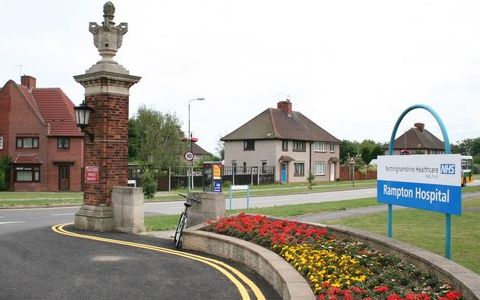By Charlotte Webster-
Following a comprehensive review of mental health services at Rampton Hospital, the Nottinghamshire Healthcare NHS Foundation Trust (NHFT) faces urgent calls for reforms to address significant shortcomings in patient safety and care quality.
The review, conducted by the Care Quality Commission (CQC) and released alongside a series of recommendations calls for immediate action to safeguard patients and enhance service delivery.
The report highlights several areas of concern, ranging from poor communication between staff and patients to inadequate staffing levels and medication governance processes.
Among the key recommendations put forth by the CQC is the proposal to pair Rampton Hospital with another high-secure facility as a ‘critical friend,’ aiming to foster collaborative oversight and monitoring by senior staff from a different NHS trust.
Additionally, the report calls for the appointment of an independent team to review staffing requirements across disciplines and the establishment of a dedicated team to assess medication audits and governance processes.
It also calls for the review of how it monitors and measures waiting times in community mental health services by setting measurable targets at team, service, and trust level.
These targets are to be monitored to ensure equity of care across services and that deterioration in people’s conditions are monitored.
It calls for services to do more to meet the needs of people who need care and treatment. This includes, but is not limited to, ensuring patients receive timely access to care and treatment
patients can equitably access the full range of evidence-based care and treatment through multidisciplinary teams with clear pathways, including psychological therapies regardless of where patients live.
It calls for services, including GP practices, are integrated and use shared systems to provide patients with seamless transitions in care and treatment, and to ensure services do more to identify and learn from incidents where patients, families and the public have come to harm from failures in how treatment and care is provided.
This includes, but is not limited to ensuring incidents and the level of harm caused are identified in a timely way.
The investigation of incidents are also to be investigated in a timely way by appropriately trained and competent staff, ensuring lessons are learnt and changes in practice are made immediately, and lessons learnt are shared appropriately with all services to improve safety.
One of the most striking recommendations urges the cessation of using therapy and education staff to bolster nursing numbers, emphasizing the importance of maintaining a therapeutic environment for patients.
The report also advocates for enhanced support and communication for deaf patients, recommending the ringfencing of British Sign Language-trained staff to cater exclusively to their needs.
In response to the review, Ifti Majid, Chief Executive of Nottinghamshire Healthcare, expressed a commitment to implementing necessary improvements to ensure the delivery of high-quality and safe care.
The trust has initiated a comprehensive improvement plan, aiming to address the concerns raised by the CQC and expedite reforms.
The recommendations also extend beyond Rampton Hospital, with calls for NHS England to define clear standards in waiting times for community mental health services and establish monitoring datasets to ensure the quality and safety of these services.
Additionally, collaboration with the Royal College of Psychiatrists and the Department of Health and Social Care is proposed to review and standardize pathways of care for individuals requiring assertive support.




